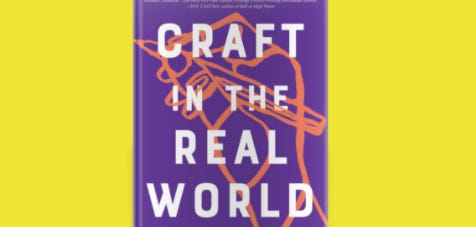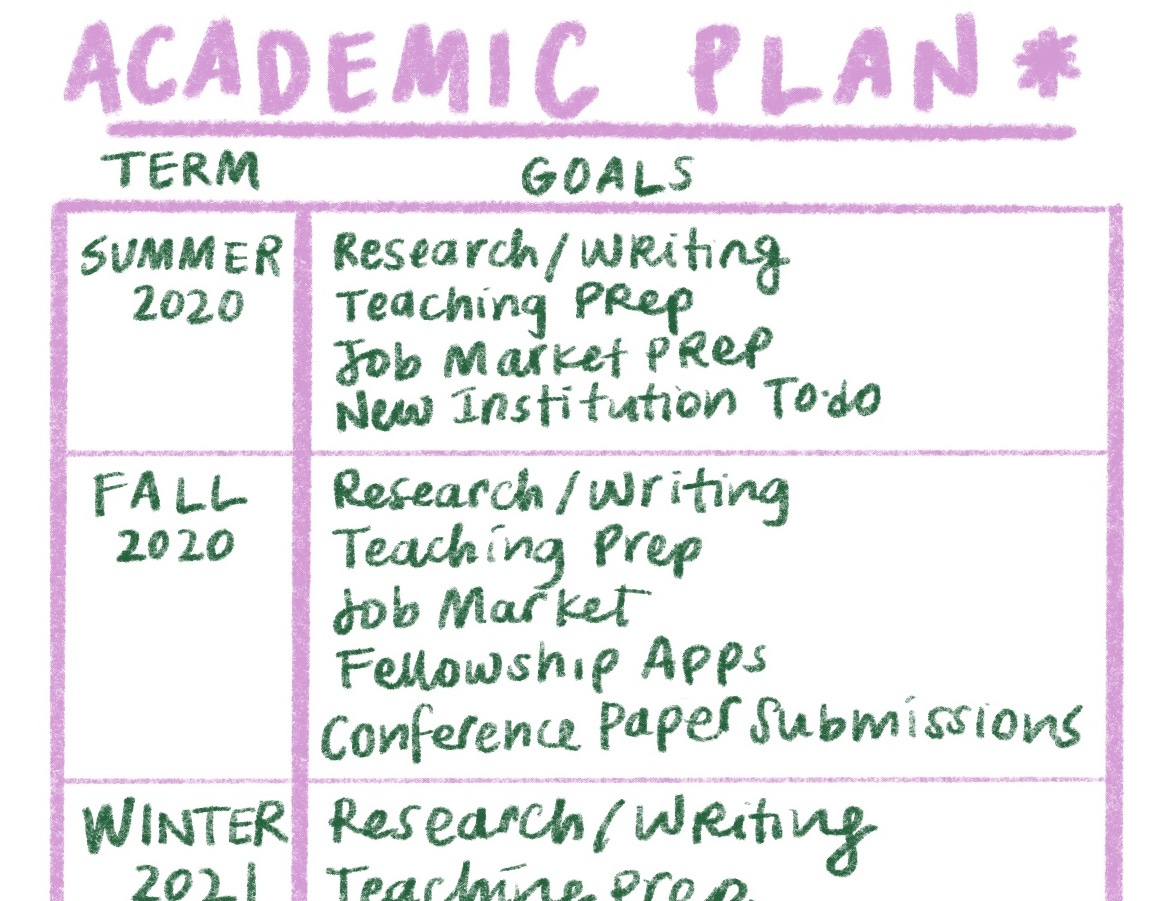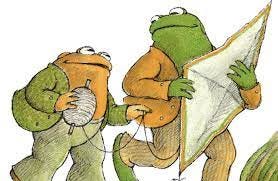47. ten things i learned (one year after getting my phd)
thinking about lessons learned from the past year
Hi there! 👋 I’m Ida, and this is tiny driver, a newsletter about research, pedagogy, culture and their intersections. Thank you for being here. Reach out anytime by just hitting reply, I love hearing from you.
Hello everyone, and happy Monday.
With the end of Northwestern's spring quarter, I am coming to terms with the fact that it has now been one year since receiving my PhD. I went straight through from my undergraduate degree to my graduate study, so this year also marks the first one where I have not identified as a "student" in over...twenty-three years? Wow, was it really that many years of schooling?
While graduating during the pandemic was not at all ideal, I am lucky to have ended up with a position at an amazing institution and in a program that I (and others ☺️) would describe as a magical utopia. 💞 What a wonderful place to end up.
I always like to take stock in some of the things I've accomplished, and this year is no different. I thought I'd share some of them with you, seeing as many of you readers have made this journey with me. (Thank you for sticking around, by the way. 🥰) Since graduating, I have:
⭐ mentored 1 amazing research assistant (p. 15 low key makes me tear up, ty Alex! 😢)
🚗 written 47 issues (!!!) of tiny driver
What a year.
In doing this all, I've learned a few things along the way that I'd like to share with you. The following is not really a list of things I did. Rather, it's more of a list of things I wish I had intentionally done in the realm of writing & teaching. It's my hope that listing them out here will help any of you who find yourselves freshly graduated and in your first research & teaching position.
A note: The list below is based on my experiences as a Visiting Assistant Professor (non-tenure track) in an interdisciplinary program at an R1 institution during a global pandemic. Please take that into consideration when reading, thank you! 🥰
What I write.
Remember the WHY of what you're doing. One practice I've written about before is my daily journaling. The 2020-2021 academic year was the year of the journal for me (thanks in part to a full scholarship for Susannah Conway's Journal Your Life Course). And I have to say that having a consistent space to reflect on my day-to-day work allowed me the room to dream in line with the larger purpose that keep me going. At times this year, it was difficult to take a step back from the smaller writing tasks I was doing and understand this time as part of a larger arc of my creative trajectory. But whenever I thought about the WHY of what I was doing—believing that the work I do on the Iranian diaspora is important to the way we conceptualize race & community moving forward—grounded me in more purposeful action.
Make some lists. Much more "practical" than the item above. When I switch institutions, I keep an ongoing list with the following titles:
📚 "Library Stuff!" - Subject librarians, IT info, research guides, frequently searched databases—you know, all that important stuff. (Also I make an appointment with the subject librarian just to say hello!)
😎 "New Colleagues" - Other faculty outside of my program that I want to reach out to and say hello. The list includes people I actually do reach out to and more ahem aspirational faculty members. 👀
🌱 "Centers & Institutes" - On-campus centers & institutes that align with your research. I also like listing if they have any faculty fellowships or funding sources, any workshops or research clusters that also might be of interest. Also: sign up for their listservs asap!
💵 "Funding Sources" - Both internal & external. I have a running list of external funding sources from when I was a grad student and saw faculty funding opportunities, so I add to that. But I also make sure to visit the faculty page & the Provost Office page for internal funding opportunities that may not be listed in department or center web pages.
☁️ "Academic Dream Mode" - What are the things you really want to accomplish in an ideal world? Who do you really want to work with? What do you really want to teach? How do you really want to plan your days writing? Nothing is too big or too small, or too "out of reach."
Have an academic plan. If you know me, you know I love a list and a plan, however loose of a plan that may be. In this case, because my contract was for 2 years, I made a loose plan of what I wanted to accomplish during the 2 years I had at Northwestern. I broke it down into the following categories: writing & research; teaching; job market; fellowships; conferences; miscellaneous. After each term, I'd take a look back at the plan and revise as necessary.
It's ok if it doesn't go to plan. Prepping four new courses in the span of two quarters taught me that sometimes the plan just really goes out the window, especially if you've never done something before. Sure, I knew that teaching 2 new classes a quarter was going to be a lot of work, but I didn't necessarily account for the amount of big picture thinking I was doing to align each week's discussion with the quarter-long learning objectives. Most days of Spring quarter, I just felt too exhausted to tackle the research I wanted to do for my own work. Rather than berate myself, I remind myself that I'm still learning.
Reach out to your colleagues for support. Despite the fact that this year's general theme was "isolation," I was lucky enough to have some amazing colleagues who mentored me over the course of the year. The year did not bring all good news—one of my articles was rejected from a journal. The experience was honestly quite devastating and I felt embarrassed by my inability to get it placed. However, once I overcame this feeling of embarrassment and reached out to my colleagues for advice, I was met only with empathy and understanding. We collectively planned around what to do and how to move forward from an experience that is actually quite commonplace in the academy.
What I teach.
Remember the WHY of what you are doing. It's no coincidence that this is also at the top of the list for the teaching portion of this list. So often this year, I would find myself feeling burnt out from the combination of the pandemic and the teaching prep. One practice I found myself doing weekly was asking, "What is the main takeaway of this class?" By thinking in takeaways, I was able to re-orient and prioritize the ideas I really wanted to get across in class. It also forced me to confront the real reasons why these courses were so critical for me to teach.
Take some time to set the stage. I mean this both in the context of each class session and the larger arc of the course. Re: each class session, students told me that the best sessions started with a mini-lecture where I "set the stage" for the readings and that day's objectives. Re: the larger course arc, for me, this really meant setting the theoretical foundation of key terms and ideas in the field. In "US Media Representations of the Middle East," I had students spend an entire course defining all the proper nouns in the course title, both individually and in relation to each other. We then built on their responses during the first third of the course by reading texts (think Stuart Hall, Edward Said, the NYU Keywords series) that unpacked key terms before diving into our cultural objects. This is all to say, when I took my time and laid the foundation for the more "interesting" or "exciting" conversations to come, those interactions were much more productive.
Every class is a chemistry experiment. I first heard this metaphor from one of my advisors (Matt G.), and it's seemed to stick with me ever since. Not every activity, conversation, or lesson plan is going to land exactly as it did for previous classes because the dynamic of each class is so contingent on the students involved, as well as other elements that you just can't control (time of the quarter, current events, etc.). After each class, I'd log what happened and my feelings about what went well or what didn't, and how that would inform the way I planned for the next course. I found that this consistent practice allowed me to build a set of best practices that were bespoke to each course.
Annotate your syllabus along the way. This piece of advice I received from another one of my advisors (Leti A.) during graduate school, and I have found it to be so productive for thinking about my courses in the long term. Along with my post-class reflection, I also noted in my own copy of the syllabus which readings were a hit or a miss. Did that text really do the work I wanted it to? Are students still thinking about the way that x scholar conceptualized y term even weeks later? Did these two readings pair well together, or should I switch one of them out for something else? If I ever teach the course again, I'll have more of a sense of what I would revise, which would be informed by insights I had when the material was still fresh in my mind.
You're going to make mistakes, and that's ok. If teaching in zoom times has taught me anything, it's that there is a 100% chance that I would fumble at some point(s) during the quarter. Whether it's technical difficulty, unclear instructions, or something else, I accepted that miscommunications would happen and that I would just troubleshoot from there. For one of my spring quarter classes, I actually assigned the wrong chapter for that week on the syllabus. And when I finally realized that was the case, it was too late to do anything about it—I just owned up to it at the beginning of class, and we went from there. Things happen, and that's ok.
What are some things that you've found to be true on your own academic journey? Let me know in the comments!
What I consume.
In the Bookshop:
Currently Reading: Slouching Towards Bethlehem by Joan Didion
On Deck: The Parable of the Sower by Octavia Butler
The votes are in!! For June's book club, we will be reading Craft in the Real World by Matthew Salesses! Thank you to everyone who voted, and feel free to purchase a copy of the book here!
🚨 BUT WAIT! Tiny driver book club member Devin Kate P. has an extra copy of the book that she'd love to send to someone else! If you'd like to get a free copy of Salesses' book for June, hit reply and let me know! I'll put the first person who replies in touch with Devin, and y'all can get the good times rollin'!🚨
Details for June book club are below!

Here’s the event info:
Date & Time: Tuesday, June 29 @ 5PM PST/8PM EST
Registration Link!
Suggested donation (for those able to donate): $3-20 through Paypal or Venmo (@idyalz)
Tiny driver reader Cassandra L. got in touch to share her amazing zine on mental health and the outdoors! Check it + her bio out below!
environMENTAL health: a zine about young adults and their outdoor spaces
Cassandra Luca is an incoming master's candidate in the English department at McGill University, focusing on ecocriticism, Internet culture and media, and Indigenous literatures. You can find her on twitter here, @cassandraluca_, and her Substack newsletter here.
Item(s) of note.
All I want is a Frog & Toad summer of wholesome fun.
NPR published this guide to gender identity terms. It may be a helpful primer for having conversations with folks in your community who may be new to the conversation.
One of my favorite writing orgs to support is Kundiman. For Pride month, they came out with a list of amazing Asian American LGBTQIA+ books that you know I immediately added to my "to read" list.
A pup-date.
Higgins got to lay out in the grass this weekend. He definitely had a grand old time:
As always, thanks so much for reading through, and I'll see you in the next one!
Warmly,
Ida










Hi Ida, thanks so much for your wonderful newsletters! I would love to know what tools you use to stay so organized in your life, especially listmaking - google sheets, Evernote, pen/paper etc ? All the best, Carrie